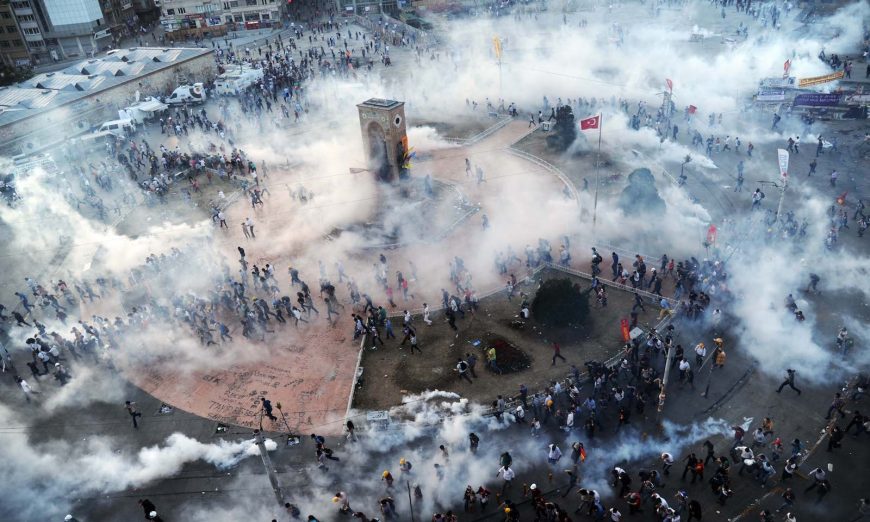From a peaceful sit-in in defense of a city park to a nation-wide protest movement. This could be a brief summary of the events that occurred in Turkey during the last few months. Just few words to describe an affair that is completely changing daily life all over the country. What began as an environmental assembly against the umpteenth “cementification project” of one of Istanbul’s last urban green areas, has undergone several transformations, especially after the brutal intervention of the police in a violent attempt to clear out the park of the green occupants. Suddenly, plural demonstrations of solidarity were sparked all over Turkey; moreover, the protests have turned into a cross-movement disapproving of the government’s recent policies. While the citizens faced police brutality during the rallies, the entire world ideologically joined them against the harsh repression of their civil and human liberties. The newly-born Gezi Park Movement inspired different actions and reactions in which it has been compared to almost all the manifestations of dissent or popular uprisings which punctuated the 2000s — from the #OccupyMovement to #TahrirSquare, passing through the #TurkishSpring. Actually, it is not the aim of this article to analyze the similarities between the Gezi Park Movement and other modern protests. My intention is to show a different perspective of the remostrances, sharing my personal thoughts and setting the Gezi Park Movement and its developments inside the democratization process that is taking place since the Justice and Development Party (AK Party) has ruled the nation.
We can declare, beyond a shadow of doubt, that the modern era of the Turkish Republic started 10 years ago thanks to the improvements made by the current government, especially from a civil and human rights perspective. From the new policies towards minorities to the peace process with the Kurds, Turkey is facing new and important challenges every day. The Gezi Park events are no less so. Now, after a while, we can also put the İstanbul-born movement on the path towards democracy and, furthermore, we can rename it the “Gezi Park Process.”
However, unlike all other processes that have been developed and are being developed, now, at a political level, the Gezi Park one is a street-based popular advance in terms of modern democracy. Unfortunately, in its path, the government is showing itself as blind and deaf to the requests of its citizens. Right now, the representatives of society are not getting the importance of a popular demonstration of dissent, typical of all modern democracies, and are creating a gap between the ones who have power and their voters. Furthermore, they are marking the protesters with belittling labels, every day increasing the distance between the actors of the process. The “polls’ legitimacy,” the flag of anti-Gezi Park theories, is losing its raison d’être in the face of the inability to frame the entire process according to previously established and obsolete schemes. In fact, what is at the core of the current complains is the complete dissimilarity with previous events: Nowadays Turkish society, especially that represented by the new generations, doesn’t perceive any difference among its members, accepts the ethnic, religious and political differences within it and, moreover, is trying to transform them into a new staring point for the entire country, guiding it into the modern era.
This is the result of a 10-year-long, lasting policy open to democratic values, respectful of diversity and human rights. Now more than ever, the republican establishment is facing the biggest challenge of his political path and is at a crossroads: It has to choose if continuing to suppress and punish heavy-handedly spontaneous critics of his work or choosing to confront the demands of the streets, becoming an example for all modern governments in dealing with the claims of its citizens.
In this way, Turkey would show how political power and the democratic ideal themselves are not a goal, but a daily transition to the improvement of every country.
Roberto Frifrini
Member of Human Rights Agenda Association, Lawyer
http://www.todayszaman.com/news-324983-an-unexpected-reaction-the-gezi-park-process-and-the-new-democratic-values-in-turkey-by-roberto-frifrini-.html

